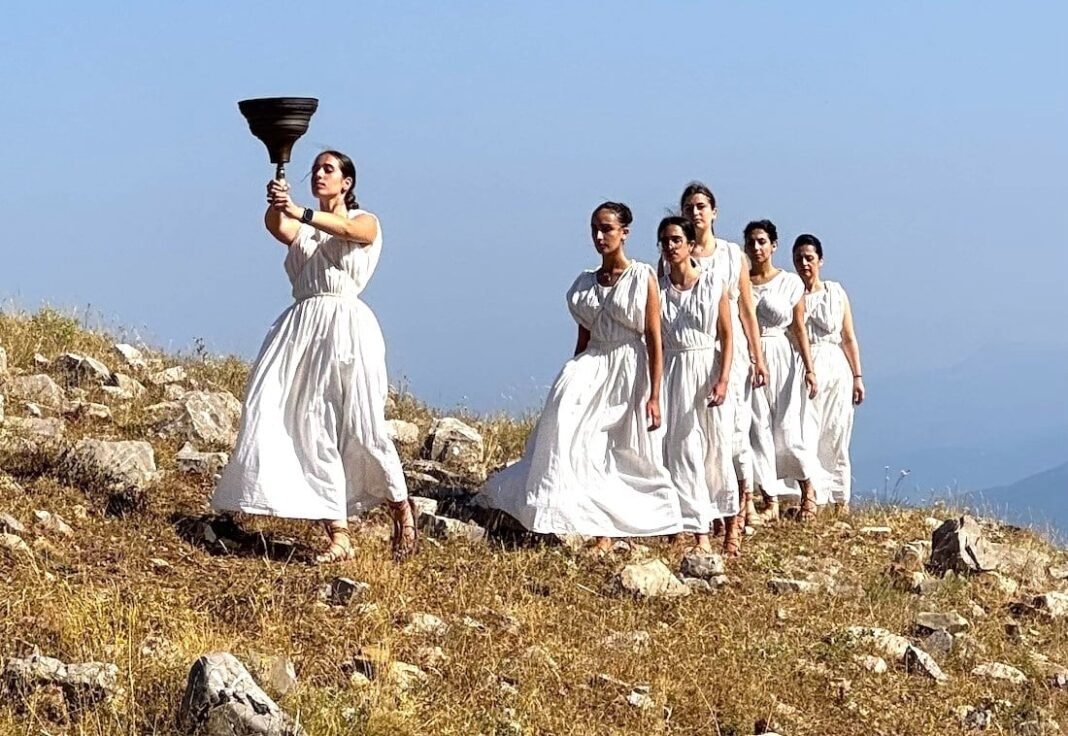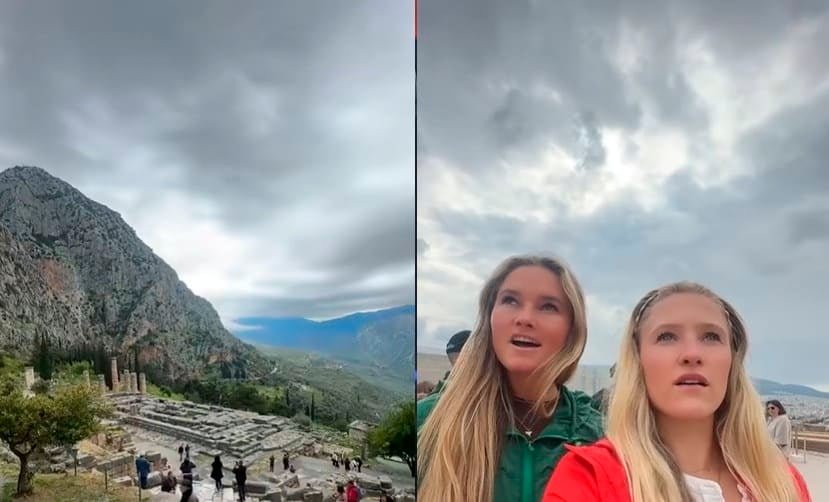
The Lykaia games, a revival of an ancient festival, took place on Sunday, September 7, at Mount Lykaio, with a flame lighting ceremony and athletic competitions. Organized by the Municipality of Megalopolis, the Lycaeus Zeus Association, and the Region of Peloponnese, the 14th modern games were a four-yearly event with pan-Hellenic participation and international appeal.
The modern games aim to uphold the ideals of “fair competition” and promote the mental, physical, and spiritual health of young people. The event emphasizes participation over performance, and winners are awarded with a wild olive branch, a medal, and a bronze tripod.

Competitions at the modern Likaia Games
Shot put
Long jump
Running
Stone throwing
Discus
Dolichos
Pankration
Race walk

The Ancient Lykaia Games
In antiquity, the Lykaia were an archaic festival and athletic competition held on Mount Lykaion in Arcadia, in honor of Zeus Lykaios. The games are believed to be older than the Olympics, with some sources dating their establishment to between 1398 and 1294 BC.
The Lykaia were considered a significant pan-Arcadian festival, and their importance was such that they were considered by some to be the second most important festival after the Eleusinian Mysteries.
The original games were known for their unusual and sometimes frightening rituals, including a secret rite on Mount Lykaion that was rumored to involve human sacrifice and the possibility of werewolf transformation for participants.
According to Greek mythology, it all started during the reign of Lycaon, the king of Arcadia in the Peloponnese. Zeus, who was always interfering in human affairs, wanted to test if Lycaon was indeed a fair man. So one night an old man in a cape, his face covered by his hood, entered the palace of Lycaon.
The Arcadian king immediately suspected that the strange man who appeared in his palace was a god who had come to test him. Lycaon killed one of his sons and offered his meat to the visitor to see if the god was truly all-knowing enough to recognize human flesh.
Lycaon’s act disgusted Zeus so much that he laid a curse on him. The king, terrified, ran away into the night. Running like a madman, he entered a dark forest and got lost. He called out for help, but when he opened his mouth, no human sound emerged. Instead, he began howling like a wolf.
A legend soon spread across Arcadia that on Mount Lykaion (so named in later tradition) a man had been transformed into a wolf and could only return to human form if he abstained from eating human flesh for nine years.
The myth of the ancient Greek werewolf Lycaon is intertwined with the local history of Arcadia. In this particular region, Zeus was worshipped as Lycaean Zeus. However, while lycos means wolf in Greek, some ancient writers and modern scholars suggest the name Lycaon may be connected to lykē (Greek:λύκη), meaning morning twilight.
Winners of the ancient games were also awarded a bronze tripod or a vase, and their glory was preserved in the history of the games. The original stadium and hippodrome have been identified by archaeologists in a mountain meadow below the altar of Zeus.
Related: Werewolves: The Ancient Greek Tale That Gave Birth to a Global Legend


